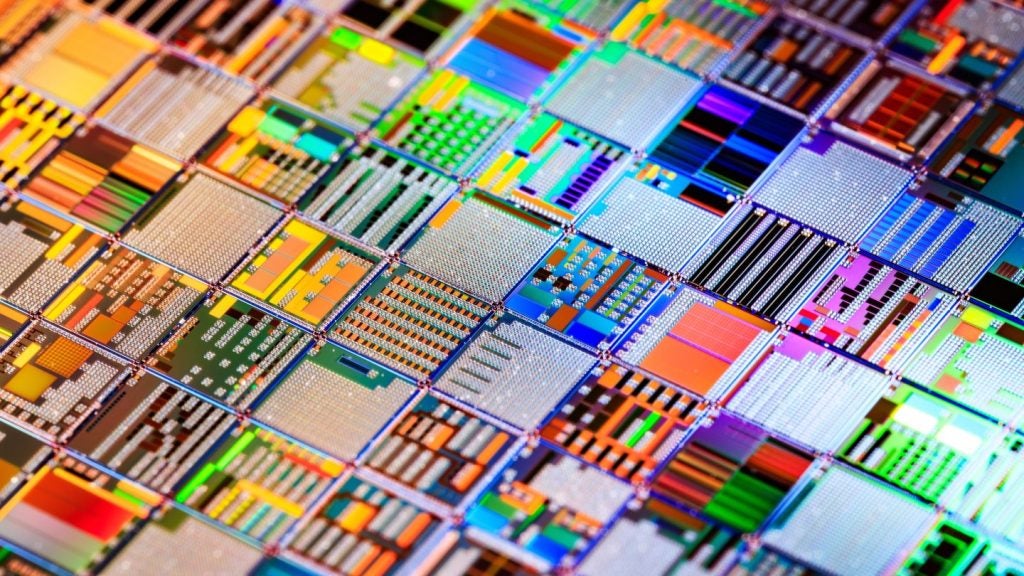

As quantum computing enters the commercial sphere, competition to lead the field is intensifying. Established technology giants including IBM, Microsoft and Google are pouring resources into the emerging technology, but quantum computing has the potential to deliver the next elusive tech ‘unicorn’ – companies valued at more than $1bn.
Silicon Valley-based PsiQuantum is the most well-funded of the front-running quantum start-ups. For investors, an early punt on a new technology can either pay huge dividends or else burn through cash in spectacular fashion. All indications are that PsiQuantum will emerge as the former.
Why Silicon Valley was the only show in town for PsiQuantum
Dr Jeremy O’Brien is one of PsiQuantum’s four founders, all from Imperial College London and Bristol University, who left the UK to establish the company in California’s Silicon Valley. The decision to locate in the US was clear from the outset and O’Brien says that the quartet have never looked back.
One reason behind this is that quantum computing is a close-knit world. O’Brien counts Herman Hauser, veteran tech entrepreneur and co-founder of semiconductor and software design company Arm, as both a friend and mentor as well as an investor in the company. As someone who is passionate about entrepreneurship and innovation with a track record of success, O’Brien listened to Hauser’s unequivocal advice to establish the start-up in Silicon Valley.
Hauser’s advice turned out to be sound. Building a quantum computer was clearly going to be a capital-intensive operation, says O’Brien who, along with his co-founders, has raised an impressive $215m of funding from frontier venture capitalists (VC). Among those investing were established VC players such as Atomico and Playground Global, renowned investors such as Blackrock and Baillie Gifford, as well as strategic partners like Microsoft’s M12 Ventures.
We are building a silicon photonic quantum computer and about three-quarters of our workforce are semiconductor engineers, so Silicon Valley is really the place to recruit.
How well do you really know your competitors?
Access the most comprehensive Company Profiles on the market, powered by GlobalData. Save hours of research. Gain competitive edge.
 Company Profile – free sample
Company Profile – free sampleThank you!
Your download email will arrive shortly
Not ready to buy yet? Download a free sample
We are confident about the unique quality of our Company Profiles. However, we want you to make the most beneficial decision for your business, so we offer a free sample that you can download by submitting the below form
By GlobalData
However, perhaps more important than access to Silicon Valley capital, which is not necessarily reliant on being based within the San Francisco Bay Area, was having a semiconductor business ecosystem in such close proximity. “We are building a silicon photonic quantum computer and about three-quarters of our workforce are semiconductor engineers, so Silicon Valley is really the place to recruit – being here gives us access to that whole semiconductor industry,” says O’Brien.
Silicon Valley’s ground zero, Palo Alto, and its surroundings remain one of the most expensive global tech hubs for setting up an operation. “We still spend the lion’s share of our funding on fabrication and manufacturing,” says O’Brien. Potential cost savings from setting up elsewhere wouldn’t make up for the benefits to be gained by having access to Silicon Valley’s network effect, however. “It is not as if we are running a 10,000-person software development team that we could put in a cheaper location for a quarter of the price,” says O’Brien. The plan is eventually to go global by setting up operations in Europe and elsewhere, possibly even near O’Brien’s alma mater Bristol.
A practical approach to quantum computing
Aside from its impressive balance sheet and votes of confidence from renowned investors and industry legends such as Hauser, the most exciting thing about PsiQuantum is the company’s relentless focus on the practical and pragmatic when it comes to quantum. At its most granular level, start-up development is about bringing ideas to life. Stewarding high-minded ideas and scientific breakthroughs to fruition is often a function of viewing them through a practical lens, and this appears to be PsiQuantum’s core value; what the company means when it says it is building the world’s first ‘useful’ quantum computer.
A unique method of using photons that run along waveguides etched onto ordinary silicon chips is central to the company’s mission of taking a practical approach. “We made a very contrarian bet relative to the rest of the industry,” says O’Brien. The decision to take a photonic rather than a matter-based approach, and a large million qubit error-corrected system versus a small noisy system, was key.
Quantum is now on the radar of CEOs, not just the CTOs, and we are engaged with a bunch of Fortune 500 companies ourselves. They know that this is coming.
This departure from the quantum cohort is now paying off. PsiQuantum has reached an inflection point in its evolution from the academic to the commercial world, which is seeing the company working with a growing number of customers across the aerospace, automotive, pharmaceutical and finance industries to essentially figure out how to solve their problems with large-scale, error-corrected quantum computers. “Quantum is now on the radar of CEOs, not just the chief technology officers, and we are engaged with a bunch of Fortune 500 companies ourselves. They know that this is coming,” says O’Brien.
The company’s pragmatic approach saw it leveraging the trillion dollars and 50 years that went into developing the computer chip industry. In 2020, despite a global pandemic, manufacturing started on early versions of the company’s quantum chips in collaboration with GlobalFoundries, one of the world’s three largest silicon chip foundries, considered by O’Brien to have the best silicon photonics capabilities.
“It is yet more validation because that sort of operation is not in the business of research projects,” he says. “It is a multi-billion-dollar facility that churns out billions of chips and components that go into your cell phones and laptops. If you want scale, performance and yield you need to build a quantum computer in an existing semiconductor facility like that.” With manufacturing of the silicon photonic and electronic chips under way, the company will soon announce Q1, its first quantum computing system.
Much of the company’s focus in the first few years of its existence, as well as its early funding, was directed at forming this relationship with a large-scale manufacturing facility. “In the end, not only did GlobalFoundries take our business, but it is also invested in our company,” says O’Brien, highlighting the benefits of Silicon Valley’s network effect.
Quantum computing and the quest for ‘useful’
However, as with most new technologies, finding the appropriate use cases is key to commercial success. “I think quantum computing suffers from having the word computing in it,” says O’Brien in relation to use cases.
Quantum technology is deserving of the hype in just how profound the applications will be.
He urges the public not to think of quantum as the next generation of computing, but rather as a new technology enabling tasks across all industries that would otherwise remain forever impossible; for example, designing a catalyst for carbon capture or a therapeutic drug development looking at the human body’s chemical interaction with synthetic substances, something that very little is known about at present. O’Brien also sees some compelling applications in financial services for portfolio optimisation and derivative pricing.
The impact from quantum on all industries will be transformational, according to O’Brien. His enthusiasm about quantum’s potential comes from a place of deep understanding about what the technology can actually do – before it has travelled through the marketing machine. “Quantum technology is deserving of the hype in just how profound the applications will be,” he says.
To those who might see quantum technology as opening Pandora’s box, O’Brien says he views the development of all new technology, if used well, as predominantly about “being able to do things that we humans really need to do if we want to sustain the sort of populations that we have and are going to continue, and to maintain a functioning planet”. A big ambition for a small company that might just live up to the Silicon Valley mantra of ‘changing the world’.






